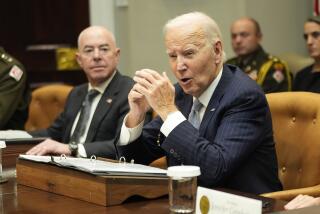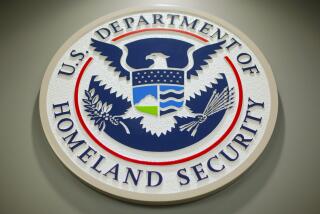In Reversal, U.S. to Admit Some Bosnian Refugees
WASHINGTON — The Bush Administration yielded to appeals from international relief groups Monday and agreed to permit the immigration of up to 1,000 Bosnian refugees, all former internment camp prisoners and their immediate families.
State Department spokesman Richard Boucher, who announced the new policy, said the refugees will be admitted under a program that will let them apply eventually for U.S. citizenship.
The number is less than 10% of the internment camp prisoners that the International Committee of the Red Cross expects to be released soon. And the policy will do nothing for about 2 million people displaced by the fighting but not interned.
Meanwhile, at a special State Department news conference, Clyde Snow--a U.S. forensic anthropologist working as a consultant to the U. N. Human Rights Commission--described the discovery of a mass grave said to hold remains of patients from a Croatian hospital who were murdered by a unit of the Serb-led Yugoslav national army.
Snow said as much as three months’ more investigation would be required to identify the victims and determine how they died. But he said physical evidence seems to corroborate witnesses’ reports that 179 hospital patients, most of them wounded Croatian soldiers, were beaten and killed by Yugoslav army soldiers and Serbian militiamen.
The decision on Bosnian refugees reversed an Administration policy of refusing to accept most refugees because moving them from the region would make it much harder for them to return home. That indirectly would enhance the practice of “ethnic cleansing”--a term used in the Yugoslav civil war to describe efforts, principally by Serbs but also by Croats, to oust members of other ethnic groups from targeted areas.
The United States already had agreed to take 100 Bosnians needing urgent medical care but refused to take others, despite requests from the Red Cross, the Office of the U.N. High Commissioner for Refugees and other relief groups.
More to Read
Sign up for Essential California
The most important California stories and recommendations in your inbox every morning.
You may occasionally receive promotional content from the Los Angeles Times.










